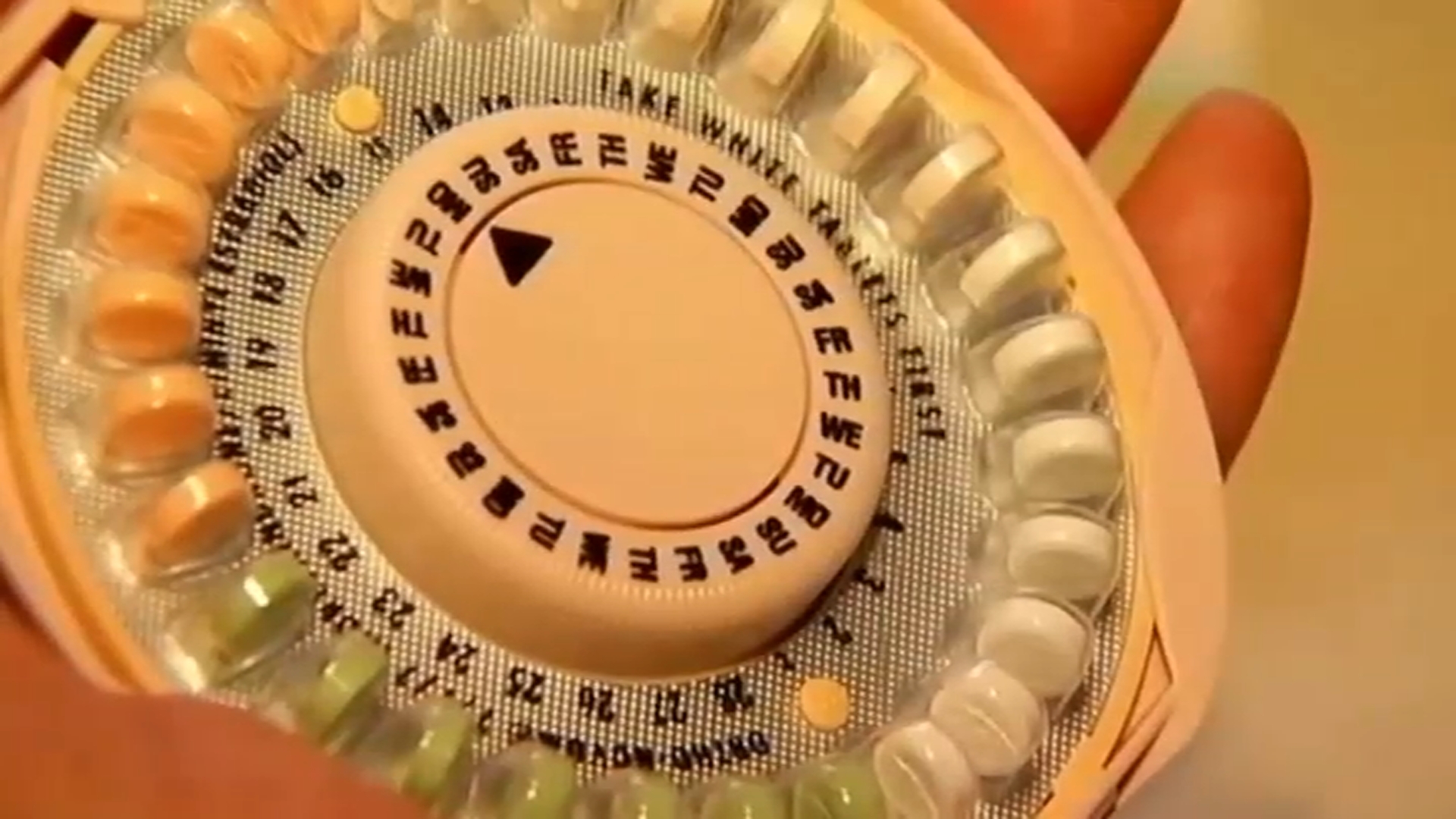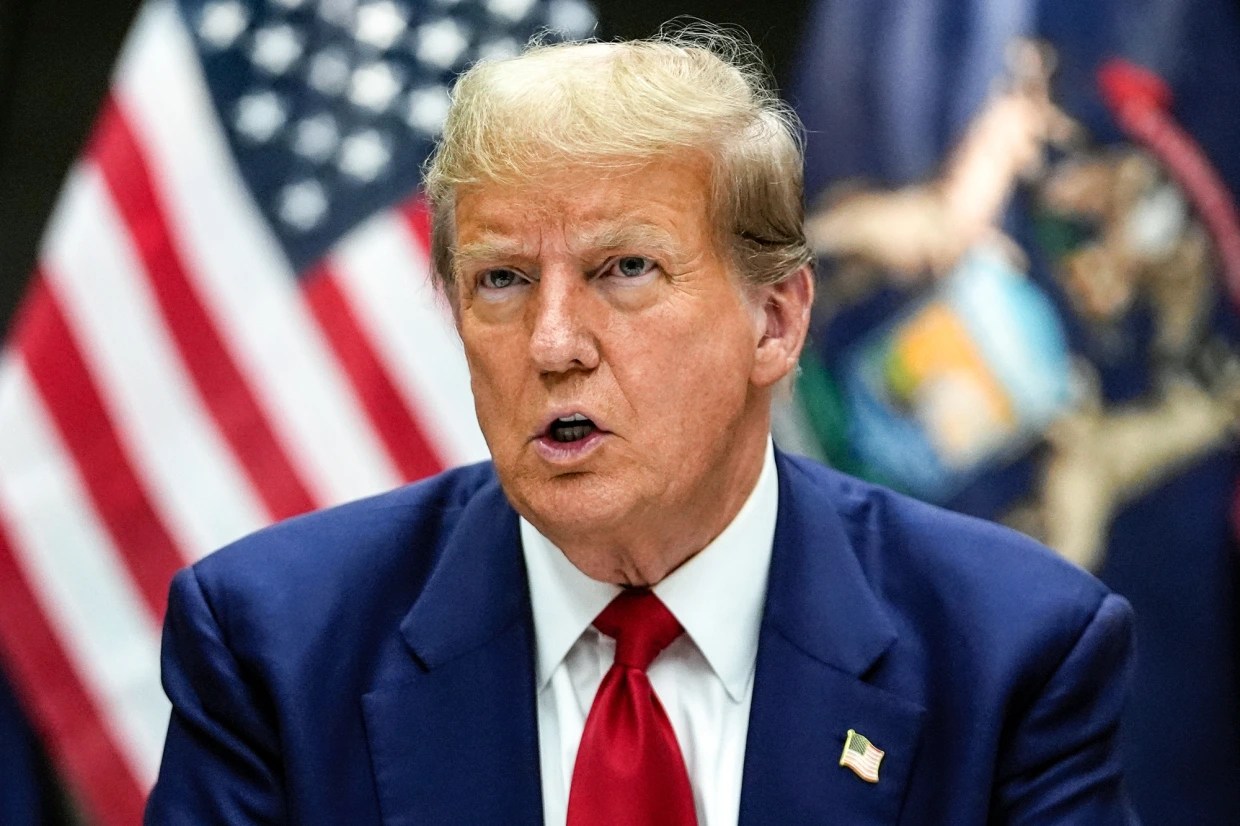A bill approved by Virginia lawmakers would have written into law the right to access and use birth control but was vetoed by the governor.
Republican Gov. Glenn Youngkin vetoed the Right to Contraception Act as Democrats across the U.S. try to protect and expand birth control access, Republicans block those attempts and concerns about reproductive rights rise as a 2024 election issue.
Youngkin vetoed the bill the night of Friday, May 17, hours before the deadline to do so.
Presumptive Republican presidential nominee Donald Trump pushed birth control into the political spotlight a few days later. He said in an interview on May 21 that he was open to restrictions on contraception access and that his campaign would release a policy on the issue “very shortly.” He later reversed course and said he “has never and never will” advocate to restrict birth control access.
We've got the news you need to know to start your day. Sign up for the First & 4Most morning newsletter — delivered to your inbox daily. >Sign up here.
Reproductive rights advocates say Republicans are slowly chipping away at birth control access.
“Contraception is more contested than most people understand it to be,” abortion politics scholar and law professor Mary Ruth Ziegler told the Associated Press.
News4 has answers to some big questions on birth control access in Virginia and beyond.
What’s Virginia’s Right to Contraception Act?
The Right to Contraception Act, which was HB609 and SB237, said: “A person shall have the right to obtain contraceptives and to engage in contraception. A health care provider shall have the right to provide contraceptives and contraception-related information.” Those rights “shall not be infringed upon by any law, regulation, or policy that expressly or effectively limits, delays, or impedes access to contraceptives or information related to contraception.”
That included birth control pills, condoms, IUDs and emergency contraception.
Sen. Ghazala Hashmi (D-Chesterfield) and Del. Cia Price (D-Newport News) introduced the bill and said they fear the U.S. Supreme Court could overturn precedents that protect contraception, similar to how the court overturned Roe v. Wade and stripped away abortion rights in June 2022.
“This particular measure will ensure that Virginians have those protections in place should federal action happen,” Hashmi told News4 last month.
Democrats got 37,000 Virginians to sign a petition for Youngkin to sign the bill.
Why did Gov. Glenn Youngkin veto Virginia’s Right to Contraception Act?
Youngkin said he vetoed the bill because of concerns about the religious freedom of medical providers asked to provide contraception, and the rights of parents to make decisions regarding their children. He said birth control access already is protected at the national level and that he does support access.
“Let me be crystal clear: I support access to contraception. However, we cannot trample on the religious freedoms of Virginians,” he said in a statement released by his office the night of his veto.
In his veto statement, the governor went into more detail on his thinking and also pointed to the role of contraception in reducing abortions.
The bill, Youngkin’s veto statement says, “creates an overly broad cause of action against political subdivisions and parents, as well as medical professionals acting in their expert judgment and within their scope of practice [and] fails to include adequate conscience clause protections for providers and also undermines the fundamental right of parents to make decisions concerning their children's upbringing and care.”
He continued in part: “Quality health care for women is essential and contraception remains a crucial component of reducing abortions and fostering a culture of life, making Virginia the best place to raise a family.”
How are other states trying to protect, expand or restrict birth control access right now?
About half of U.S. states have had legislation this year to establish a legal right to contraception, according to the Guttmacher Institute, which supports reproductive rights. As of May 1, the group found Virginia to be the only state where one of the measures passed either legislative chamber.
Arizona: In March, Arizona Republicans unanimously blocked a Democratic effort to protect the right to contraception access.
Indiana: Indiana adopted a law that requires hospitals to offer women who receive Medicaid coverage long-term reversible implantable contraceptives after giving birth — but only after stripping IUDs from the bill. That move was made over objections from Democrats and some health care providers.
Missouri: A Missouri women’s health care bill was stalled for months over concerns about expanding insurance coverage for birth control after some lawmakers falsely conflated birth control with medication abortion.
Oklahoma: Oklahoma’s Republican-controlled legislature advanced legislation many reproductive rights advocates warned could ban emergency contraception and IUDs.
Tennessee: Tennessee Republicans blocked a bill that would have clarified that the state's abortion ban would not affect contraceptive care or fertility treatments.
Wisconsin: In Wisconsin, Democrats introduced a bill that was intended to protect contraception access last year, but it never got so much as a hearing in either the GOP-controlled state Assembly or state Senate before the two-year session ended in March. Senate Democrats tried to pull the bill from committee in February and force a floor vote, but all the chamber’s 22 Republicans voted against the move.
What birth control protections or restrictions could we see at the national level?
Trump's remarks this week and the increasing intensity of fights over contraceptives at the state level provide an opening for Democrats, who are seeking to capitalize on the issue as a potent driver of voter turnout in the fall — just as abortion has been since the Supreme Court overturned a constitutional right to the procedure.
While Trump has sent mixed messages on reproductive rights, President Joe Biden has attacked his positions and highlighted their potential consequences. The Biden campaign this week warned that Trump, in light of the comments his campaign later walked back, would support other states taking similar action to restrict access to contraceptives.
Senate Majority Leader Chuck Schumer, D-N.Y., has said he wants a vote as soon as next month on a bill to protect access to contraception that is similar to one the U.S. House passed in 2022 when Democrats controlled the chamber. Even if that legislation fails to surmount the Senate's 60-vote filibuster hurdle, it will put Republicans on record on an issue that resonates personally with a wide swath of the electorate.
Voters already have shown they broadly support abortion rights, even in conservative states such as Kansas, Kentucky and Ohio where they have sided with abortion rights advocates on ballot measures over the past two years. Legislative tangling over contraception access has been less visible, but that has begun to change as the abortion debate begins to branch off to other areas of reproductive rights.
News4 sends breaking news stories by email. Go here to sign up to get breaking news alerts in your inbox.
What’s next for Virginia’s Right to Contraception Act?
Hashmi and Price, the two Virginia lawmakers who introduced the bill, said they’ll reintroduce it.
“This is not the end of our fight. We will be back year after year until this bill is signed and the vital health care that Virginians rely on is protected," they said in a statement. "We do this so that Virginia can continue to be a beacon of freedom and reproductive justice in the South."




